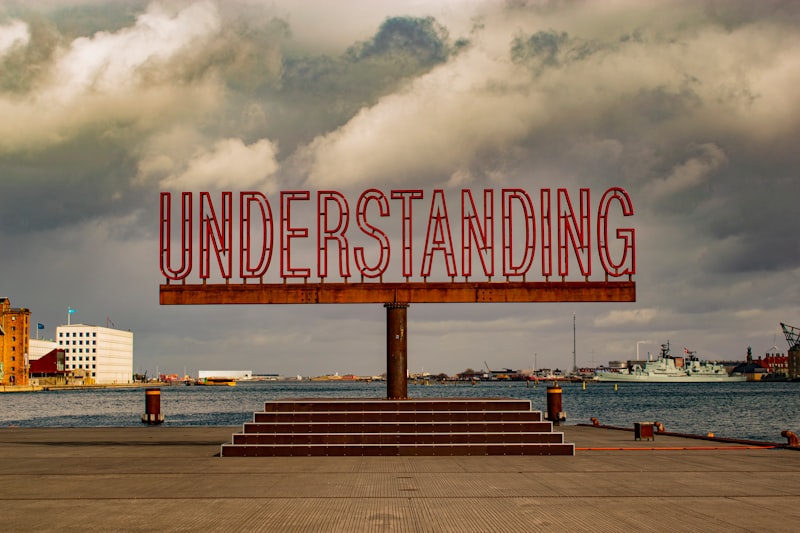- Rejection dreams indicate a lack of acceptance or inclusion in social situations, which can stem from past experiences of exclusion, low self-esteem, or social pressure to conform.
- Possible interpretations of rejection dreams include a need for self-evaluation, fear of missing out (FOMO), fear of rejection or failure, negative perception of social status, and avoiding confrontation.
- Dealing with rejection dreams involves self-reflection, building self-confidence, seeking support, confronting fears and insecurities, and setting boundaries.
- To navigate rejection dreams, acknowledge and validate emotions, reflect on their meaning, explore self-worth and self-acceptance, communicate and connect with others, and focus on personal growth through goal-setting, resilience-building, and self-discovery.
Have you ever had a dream of being rejected from an event that left you feeling uneasy? Don’t worry, you’re not alone. Exploring the meaning behind this common dream can help us better understand our subconscious fears and emotions. Let’s dive in.
Understanding Rejection in Dreams

Dreams can often be a window into our subconscious mind, revealing our deepest fears and insecurities. One common theme that many people experience in their dreams is the feeling of being rejected from an event. This dream can leave us feeling perplexed and uneasy, wondering what it means and what it is trying to tell us about our waking life. In this section, we will explore the various aspects of rejection in dreams and how we can better understand their meaning.
1. What Rejection in Dreams Represents
When we dream of being rejected from an event, it often reflects some aspect of our waking life where we feel a lack of acceptance or inclusion. This dream can manifest as feeling left out, excluded, or not welcomed in social situations. It may also indicate a fear of missing out or a sense of being unworthy or not good enough.
Rejection in dreams can stem from various sources, such as past experiences of exclusion, low self-esteem, or social pressure to conform. It may also be a reflection of unresolved conflicts or emotions that we need to address. It is important to note that dreams are symbolic and may not always represent actual events or situations.
2. Possible Interpretations of Rejection in Dreams
Dreams about rejection can have different interpretations depending on the individual’s personal experiences and emotions. Here are some possible interpretations:
- A Need for Self-Evaluation
Being rejected from an event in a dream may suggest a need for self-reflection and evaluation. It could be a sign that we need to reassess our values, priorities, and relationships. - Fear of Missing Out (FOMO)
Dreams of rejection may reflect a fear of missing out on enjoyable experiences or opportunities. It could stem from comparing ourselves to others and feeling inferior. - Fear of Rejection or Failure
Rejection dreams can be associated with a fear of rejection or failure in our waking life. This fear may be rooted in past experiences or societal pressures to succeed. - Negative Perception of Social Status
Dreams of rejection may highlight our negative perception of our social status or how we are perceived by others. It may indicate feelings of insecurity or a need for social acceptance.
3. Dealing with Rejection in Dreams
Experiencing rejection in dreams can leave us feeling unsettled and questioning our self-worth. Here are some tips for dealing with rejection dreams:
- Self-Reflection and Self-Evaluation
Take the time to reflect on the underlying emotions and themes in your dream. Consider if there are any unresolved issues or fears that need to be addressed. - Building Self-Confidence
Work on building your self-confidence and self-esteem. Focus on your strengths, accomplishments, and unique qualities. - Seeking Support
Surround yourself with a positive support system of friends, family, or a therapist who can offer guidance and encouragement. Share your dreams and feelings with someone you trust. - Confronting Fears and Insecurities
Take steps to confront your fears and insecurities head-on. Challenge negative self-talk and take risks to overcome feelings of rejection. - Setting Boundaries
Learn to set healthy boundaries and prioritize your well-being. Don’t be afraid to say no or express your needs and wants.
Dreams are symbolic representations of our inner emotions and thoughts. By exploring the meaning behind rejection dreams, we can gain insight into ourselves and make positive changes in our lives.
Interpreting Rejection Dreams

Dreaming of being rejected from an event can be a reflection of our fears, insecurities, and hidden emotions. It may leave us feeling vulnerable and disappointed upon waking up. However, understanding the meaning behind these dreams can provide valuable insights into our subconscious thoughts and help us navigate the challenges we face in our waking lives. In this section, we will explore the common interpretations and meanings of dreaming about rejection from an event.
1. Feeling of Inadequacy or Low Self-Esteem
One possible interpretation of dreaming about being rejected from an event is a feeling of inadequacy or low self-esteem. This dream can be a reflection of how we see ourselves and our worth. It may indicate that we feel unworthy of acceptance and love from others. Past experiences of rejection, such as being excluded from a group or not being invited to a party, can contribute to this feeling.
To overcome this feeling, it is important to address our self-worth and learn to love ourselves. We can start by recognizing our strengths and weaknesses, practicing self-care, and surrounding ourselves with positive support systems. By building self-confidence, we reduce the chances of having dreams about rejection and not feeling good enough.
2. Fear of Rejection or Failure
Another common interpretation of dreaming about rejection from an event is a fear of rejection or failure. This fear can stem from past experiences where we have been rejected or failed in some way. High expectations for ourselves or societal pressure can also contribute to this fear.
When we dream about being rejected from an event, it may be a reflection of this fear and the anxieties we have about not being accepted by others. It is important to remember that dreams don’t always have a straightforward interpretation. Other possible explanations for this dream could include a desire to be accepted or included, feeling left out or overlooked, or even just a reflection of a recent experience.
To address this fear, we can challenge negative self-talk, confront our fears and insecurities, and seek support from positive friends or family members. It may also be helpful to talk to a therapist for additional guidance in overcoming our fear of rejection and failure.
3. Negative Perception of Social Status
Dreaming about being rejected from an event can also reflect a negative perception of our social status. We may feel inferior or inadequate compared to others in our social group or community. This dream can highlight our fears of not being accepted or included in certain social circles or activities.
To improve our perception of social status, it is important to recognize our own worth and value. We should avoid comparing ourselves to others and focus on personal growth and development. By establishing healthy boundaries, prioritizing our well-being, and seeking positive relationships, we can improve our confidence and sense of belonging.
4. Sign of Avoiding Confrontation
Dreaming about being rejected from an event can sometimes be a sign of avoiding confrontation. This dream may indicate that we have a tendency to shy away from difficult conversations or situations that may cause discomfort. While it can be easier to avoid confrontation, doing so can hinder personal growth and lead to unresolved conflicts or missed opportunities.
To address this avoidance, we can work on developing assertiveness and communication skills. It is important to recognize the impact that avoiding confrontation may have on our relationships and overall well-being. Seeking support from friends, family, or a therapist can also provide valuable insight and guidance in navigating difficult conversations.
5. Symbol of Unresolved Grief or Past Experience
Dreams about being rejected from an event can be a symbolic representation of unresolved grief or past experiences. These dreams may bring back suppressed memories and emotions related to traumatic events. It is important to recognize the impact of trauma on our dreams and mental well-being.
Seeking help from a mental health professional is crucial in overcoming the negative effects of trauma and reducing the frequency of distressing dreams. By addressing unresolved issues and processing emotions in a safe and supportive environment, we can work towards healing and personal growth.
Addressing and Navigating Rejection Dreams

Dreams of being rejected from an event can be unsettling and leave us with feelings of confusion and insecurity. However, these dreams provide an opportunity for self-reflection and growth. By addressing and navigating rejection dreams, we can gain a better understanding of ourselves and work towards building healthier relationships and a more positive self-image.
1. Acknowledge and Validate Your Emotions
- Recognize your feelings
Rejection dreams can bring up a range of emotions such as sadness, anxiety, or insecurity. It’s important to acknowledge and validate these emotions without judgment. - Create a safe space
Create a safe space for yourself to process these emotions. This can be through journaling, talking to a trusted friend, or seeking professional help if needed.
2. Reflect on the Meaning
- Pay attention to details
Take note of the specific details of the dream such as the people involved, the setting, and the emotions experienced. These details can provide insight into the underlying meaning behind the dream. - Consider relevant experiences
Reflect on any past experiences or current situations in your life that may be related to feelings of rejection. This could include past relationships, professional challenges, or social difficulties. - Identify patterns
Look for recurring themes or patterns in your rejection dreams. Are there specific situations or emotions that consistently appear? This can help you uncover deeper issues or fears that may need to be addressed.
3. Explore Self-Worth and Self-Acceptance
- Work on self-esteem
Rejection dreams can often be a reflection of low self-esteem or feelings of inadequacy. Practice self-care and work on building self-esteem by recognizing your strengths and accomplishments. - Practice self-compassion
Be kind to yourself and practice self-compassion. Remember that everyone experiences rejection at times, and it does not define your worth as a person. - Challenge negative self-talk
Replace negative self-talk with positive affirmations. Focus on your unique qualities and remind yourself of your value and worthiness.
4. Communicate and Connect
- Address relationship issues
If your rejection dreams are related to specific relationships in your life, consider having open and honest conversations with the people involved. Express your feelings, concerns, and needs, and try to find resolution or understanding. - Seek support
Reach out to trusted friends or family members for support. Share your experiences and feelings with them, and listen to their perspective. Connecting with others can provide a sense of validation and help you gain different insights into your situation. - Consider therapy
If rejection dreams persist or significantly impact your daily life, consider seeking professional help from a therapist or counselor. They can provide guidance, support, and strategies for navigating rejection and building healthier relationships.
5. Focus on Personal Growth
- Set personal goals
Use rejection dreams as an opportunity for personal growth. Set realistic goals for yourself that align with your values and aspirations. This could include building new skills, pursuing hobbies, or working towards professional or personal achievements. - Practice resilience
Cultivate resilience in the face of rejection. Treat setbacks as opportunities for learning and growth rather than personal failures. Embrace challenges as a chance to develop resilience and perseverance. - Embrace self-discovery
Use rejection dreams as an invitation for self-discovery. Explore your passions, interests, and values. Engage in activities that bring you joy and fulfillment.
Conclusion
Remember that rejection dreams are a reflection of our deep-seated fears and insecurities. It’s okay to acknowledge these emotions and sit with them for a while. But it’s important not to let them consume us. Instead, focus on building your self-confidence and seeking support from those who uplift and accept you. Set boundaries when necessary, and remember that you are worthy of inclusion and belonging. By confronting our fears and insecurities head-on, we can navigate future rejection dreams with resilience and self-assurance. Believe in yourself, and know that you have the power to shape your own destiny.










Leave a Reply